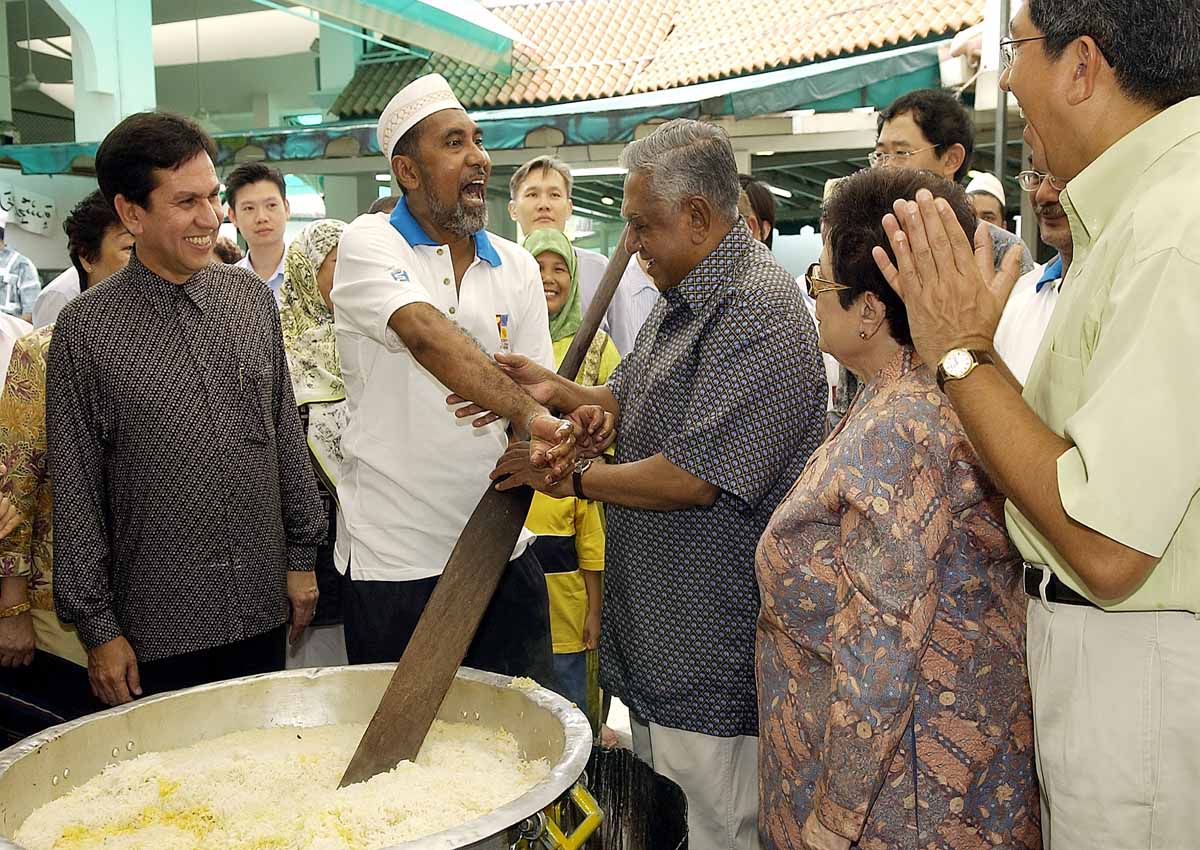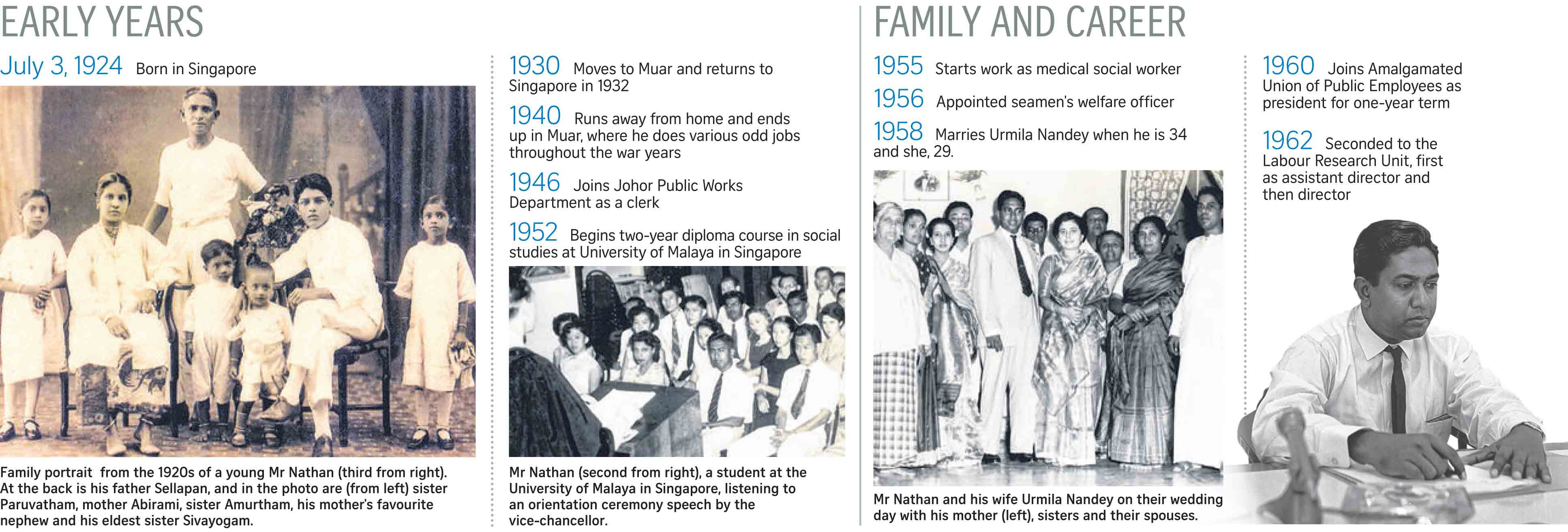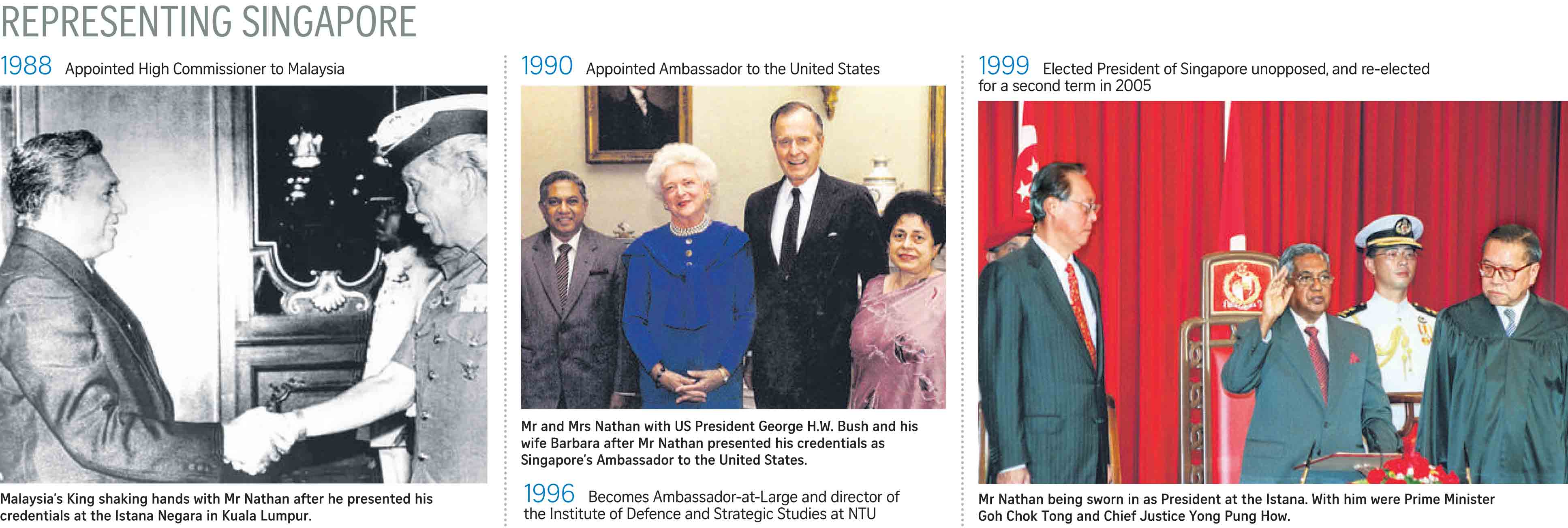From my three one-on-one conversations with former president S R Nathan over the years, I learnt that he considered the presidency his weightiest responsibility, chiefly because, first, he was uncomfortable that it technically made his former boss and mentor Lee Kuan Yew subordinate to him. And second, Mr Nathan could not shake off his own humble beginnings.
In our last meeting, on June 16, he recalled his years with The Straits Times fondly, and worried about Singapore’s future, given what he called increasing “anti- foreigner sentiment”.
That meeting included ST’s editor-at-large Han Fook Kwang and EDB Society president Lee Suan Hiang. Sadly, Mr Nathan was hospitalised just weeks later on July 8.
But on June 16, he was full of verve. He was about to turn 92 but he spoke firmly, fiercely, his eyes flashing conviction. Mr Han remarked that he was looking good.

Some are close confidants or friends. Others have seen him only from afar or on television. All were affected by his death.

Mr Nathan beamed and said later: “After my stroke, I can’t walk very much. At certain times, for no rhyme or reason, I get very tired. But my memory is good, particularly of events. It is very clear on the lessons of history.”
He then mused on many concerns, including increasing xenophobia here, and how discomfiting he found being president at first. He was also perturbed by how many Singaporeans, especially younger ones, embraced Western ways such that, as he put it, “we often forget ourselves”.
It was crucial, he stressed, that Singaporeans treasured their own values to “balance things”.
The former envoy to Malaysia and the United States then underscored the importance of humour and learning another’s language to build bridges. For instance, he once wondered why a Malay colleague, who spoke no English, always had a copy of ST under his arm. The colleague responded: “Pakai ST ada stail, stail mesti ada.” (To be seen with ST is to be stylish, and one must be stylish.)
What was also obvious from the June 16 chat was that his six years at The Straits Times Press (1975) Ltd – which morphed into Singapore Press Holdings – stayed with him.
“When I became executive chairman of Straits Times in 1982, all the fellows grumbled that I always found something wrong with the paper every day. I said, ‘Eh, how many mistakes did I point out today?’ They said, ‘Two mistakes’. I said, ‘Come on, lah!’
He added: “It soon became something of a source of pride whenever they could say, ‘He could only find two mistakes’.”
Direct but never curt, pithy but never glib, he described his experiences so vividly that yesteryear seemed like yesterday. When I mentioned that, like him, I once lived in Muar, he regaled us with historical nuggets about this Johor royal city. Were we aware that many Muarians hailed from Banjarmasin in Kalimantan? Did we know the Japanese had sunk a ship in the Muar River during World War II?
That was further proof that he never forgot his roots. At our first meeting at the Istana on April 26, 2010, Mr Nathan, a Hindu, told me that in all he did, he followed the words of his mother, Madam Abhirami Ammal, who brought him and her six other surviving children up after their father died in 1932: “One, nothing happens without His will. And two, whatever your obligation is, do it.”
Words to live by.

This article was first published on Aug 24, 2016.
Get a copy of The Straits Times or go to straitstimes.com for more stories.



















































































































































































